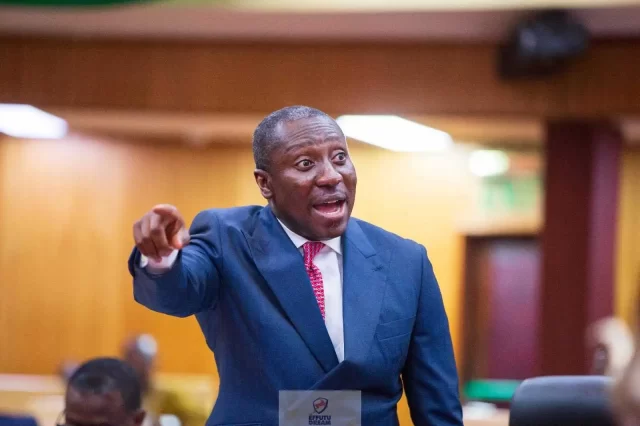The Minority in Parliament has launched a scathing attack on President John Mahama, accusing him of hypocrisy and poor leadership following the mass dismissal of public sector workers hired between October and December 2024.
Alexander Afenyo-Markin, Leader of the Minority Caucus and MP for Effutu, led the charge, declaring that Mahama’s administration would be remembered as the most ruthless in Ghana’s history when it comes to job cuts within the first 100 days of a presidency.
The dismissals, triggered by a January directive from Chief of Staff Julius Debrah, ordered all state agencies to suspend the employment of workers recruited after December 7, 2024. The move has left thousands in limbo, with many already-employed workers in critical sectors like healthcare, education, and water management suddenly out of work. Afenyo-Markin condemned the decision as tone-deaf, especially coming from a president who had recently lamented Ghana’s soaring unemployment rates during his State of the Nation Address (SONA).
“How can a leader who claims to care about unemployment turn around and sack thousands of workers?” Afenyo-Markin asked, his voice rising in Parliament. “This is not just hypocrisy; it’s a betrayal of the trust Ghanaians placed in this administration.” The Minority’s frustration was palpable as MPs staged a symbolic protest, clad in black to mourn what they called the “death of job security” under Mahama’s watch.
The criticism didn’t stop at the dismissals. Afenyo-Markin also took aim at the President’s failure to deliver on his campaign promise of ensuring 30% female representation in his Cabinet. Despite pledging to prioritize gender equality, Mahama’s current Cabinet includes only two women out of 19 ministers—a glaring shortfall that Afenyo-Markin said undermines the government’s credibility. “If you can’t keep a simple promise like this within your first 100 days, how can Ghanaians trust you to deliver on bigger commitments?” he questioned.
The Minority Leader didn’t mince words when dissecting Mahama’s SONA, which he dismissed as a litany of complaints devoid of actionable solutions. “The President spent hours lamenting the challenges facing this nation but failed to acknowledge the progress made over the past eight years,” Afenyo-Markin said. He challenged Mahama’s bleak portrayal of the economy, pointing out that the government had managed to clear arrears, increase public sector salaries by up to 30%, and sustain social intervention programs like Free SHS without the crippling power outages—locally known as ‘dumsor’—that plagued previous administrations.
“If the economy is as bad as the President claims, how has his government been able to meet statutory payments, pay school feeding caterers, and keep the lights on for eight years?” Afenyo-Markin asked, his tone dripping with skepticism.
The Minority’s response underscores a deepening rift between the government and opposition over the true state of the nation. While Mahama’s address painted a picture of a country grappling with economic mismanagement, the Minority insists that his administration’s policies—from mass dismissals to broken promises—are making matters worse. For Afenyo-Markin and his colleagues, the dismissals are not just a policy misstep but a symbol of a government struggling to align its actions with its rhetoric.
As the debate rages on, one thing is clear: the Mahama administration’s early days have set the stage for a contentious political battle, with job security, gender equality, and economic credibility at the heart of the storm.
Send your news stories to newsghana101@gmail.com
Follow News Ghana on Google News


















